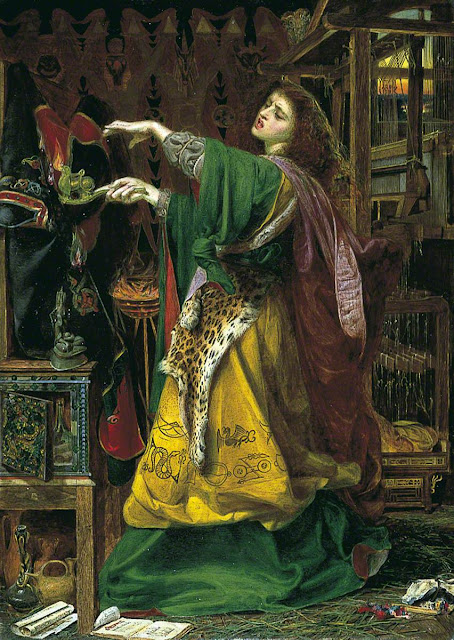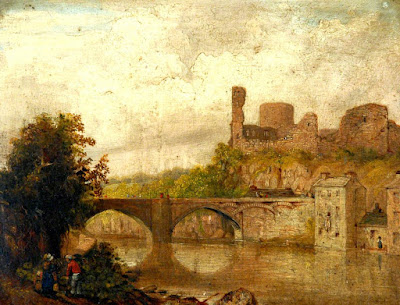Mandelson and Cummings, David Hockney, Deepfakes
Mandelson and Cummings
… As an editor, I had dealings with Mandelson. No one doubted his brilliance: a much more substantial figure than Cummings, he was foremost among the inventors of New Labour. The issue was always that of trust. One day in 1998 our news desk told me that he had borrowed a large sum of money from his cabinet colleague Geoffrey Robinson to buy a house, and failed to declare this. Robinson's business affairs were already controversial.
Then I received a phone call from Peter himself, who had become secretary of state for trade and industry. "I hear you've got hold of a story about me getting money from Geoffrey Robinson," he said. "I can tell you categorically that it is untrue. I borrowed the money from my mother." I called in the staffers running the investigation and told them to hold publication.
They remonstrated furiously. Our political editor said that Westminster was crowded with people burdened by rucksacks of regret, acquired by accepting the word of Peter Mandelson. I responded that every politician was entitled to be believed until shown to be a liar.
The rest is legend. The story of the interest-free £373,000 Robinson loan made headlines, not at first in my Evening Standard. I was chairing the editorial conference, surrounded by justly reproachful faces when the phone rang. It was Mandelson, who said, "What must I do to convince you that I am not a crook." I responded: "Your problem, Peter, is to convince me that you are not a liar." After a discernible pause he said: "I always intended to buy the house with family money."
Mandelson had to resign, yet Blair brought him back ten months later as Northern Ireland secretary. Astoundingly, in 2001 he was obliged to resign again, for having improperly leant on the Home Office to grant a passport to the Indian tycoon Srichand Hinduja.
Yet in 2004 Blair made Mandelson a British EU commissioner. This serial deceiver ended his political career as a peer of the realm and business secretary in the Gordon Brown government. The case made for him by two prime ministers' intimates was identical to that advanced today for Cummings: that, whatever his sins, he was indispensable to the New Labour project.
Because people have short memories, Lord Mandelson is nowadays billed as an elder statesman. He is a favoured guest at the dinner tables of the rich and on the yachts of Russian oligarchs:
"Peter is such fun, you know."
... Like Cummings, he believes that rules are for little people; that objective fact is a ridiculously old-fashioned concept, which must not be allowed to impede grand designs; that a charismatic leader can create his own truth, merely by stating it often enough and ignoring contradiction.
... While Mandelson's misconduct outraged the political and media class, ordinary people barely understood what he had done, except possibly his false statement to a building society. By contrast Cummings' offence and defiant lack of apology for it, are comprehensible by every inhabitant of locked-down Britain. He may wind up, like Mandelson, on the comfortable red benches of the Lords and sunloungers of oligarchs' yachts. But then again, he may not. The outcome will be a useful test of how far post-truth, post-shame values have raped our polity.
(Max Hastings, The Times, 2020)
Is it any wonder that many people have less and less trust in politicians and the political process?
Stay Alert, Travel North
(Diary, The Times 2020)
David Hockney
Catherine Bennett obviously can't look at a smoker enjoying their cigarette... My colleagues Picasso, Monet, Matisse and Renoir all smoked and had long and very productive lives. Recently, Gillian Ayres died at 88, smoking away to the end. It's Catherine Bennett giving the health advice, not me. She would be telling Monet off for smoking.
There's something else: petrol fumes and what they have done to us. I asked what's going to happen now we have had two months without many cars. A French doctor told me that there had been fewer heart attacks and strokes in this time, which is just what they blame tobacco for. Tobacco has been demonised in Britain, not so in France or Germany, not to mention Greece with the lowest number of deaths and the highest number of smokers. We are messy creatures and all have to die. Why go on about it? The Russians say, if you don't smoke or drink you die healthy. Death awaits you even if you do not smoke. My smoking is a trivial thing blown out of all proportion. Love life.
(David Hockney, Normandy, France, The Observer, 2020)
Let the man smoke in peace! As he says: death awaits us all.
... "Deepfakes" are false images in which faces, bodies and voices are manipulated to make images of real people doing things they did not do and did not say. Deepfakes first emerged where most new technology begins its life in the world, in pornography, but their arrival in the worlds of politics and propaganda is not far away. These deepfakes are getting better, fast. So are the techniques not just for altering images, but for creating entirely new ones.
 |
| Morgan-le-Fay, Frederick Sandys (1829-1904) Photo Credit: Birmingham Museums Trust [CCO} |
Then I received a phone call from Peter himself, who had become secretary of state for trade and industry. "I hear you've got hold of a story about me getting money from Geoffrey Robinson," he said. "I can tell you categorically that it is untrue. I borrowed the money from my mother." I called in the staffers running the investigation and told them to hold publication.
They remonstrated furiously. Our political editor said that Westminster was crowded with people burdened by rucksacks of regret, acquired by accepting the word of Peter Mandelson. I responded that every politician was entitled to be believed until shown to be a liar.
The rest is legend. The story of the interest-free £373,000 Robinson loan made headlines, not at first in my Evening Standard. I was chairing the editorial conference, surrounded by justly reproachful faces when the phone rang. It was Mandelson, who said, "What must I do to convince you that I am not a crook." I responded: "Your problem, Peter, is to convince me that you are not a liar." After a discernible pause he said: "I always intended to buy the house with family money."
Mandelson had to resign, yet Blair brought him back ten months later as Northern Ireland secretary. Astoundingly, in 2001 he was obliged to resign again, for having improperly leant on the Home Office to grant a passport to the Indian tycoon Srichand Hinduja.
Yet in 2004 Blair made Mandelson a British EU commissioner. This serial deceiver ended his political career as a peer of the realm and business secretary in the Gordon Brown government. The case made for him by two prime ministers' intimates was identical to that advanced today for Cummings: that, whatever his sins, he was indispensable to the New Labour project.
Because people have short memories, Lord Mandelson is nowadays billed as an elder statesman. He is a favoured guest at the dinner tables of the rich and on the yachts of Russian oligarchs:
"Peter is such fun, you know."
... Like Cummings, he believes that rules are for little people; that objective fact is a ridiculously old-fashioned concept, which must not be allowed to impede grand designs; that a charismatic leader can create his own truth, merely by stating it often enough and ignoring contradiction.
... While Mandelson's misconduct outraged the political and media class, ordinary people barely understood what he had done, except possibly his false statement to a building society. By contrast Cummings' offence and defiant lack of apology for it, are comprehensible by every inhabitant of locked-down Britain. He may wind up, like Mandelson, on the comfortable red benches of the Lords and sunloungers of oligarchs' yachts. But then again, he may not. The outcome will be a useful test of how far post-truth, post-shame values have raped our polity.
(Max Hastings, The Times, 2020)
Is it any wonder that many people have less and less trust in politicians and the political process?
Stay Alert, Travel North
 |
| Barnard Castle, County Durham, unknown artist. Photo Credit: Preston Park Museum & Grounds [CC BY-NC-ND] |
I noted in February the irony, given the belief this pandemic started with a pangolin kebab, that an anagram of coronavirus is carnivorous. An even better one has been found by Tim King, who sets our
Listener crosswords as Encota and discovered that the government message "stay alert, control the virus, save lives" can be rearranged to form "easily survives travel north to castle".(Diary, The Times 2020)
David Hockney
 |
Old Man Smoking, Nicholas Condy (1793-1857)
Photo Credit: Royal Albert Memorial Museum [CC BY-NC-SA]
|
There's something else: petrol fumes and what they have done to us. I asked what's going to happen now we have had two months without many cars. A French doctor told me that there had been fewer heart attacks and strokes in this time, which is just what they blame tobacco for. Tobacco has been demonised in Britain, not so in France or Germany, not to mention Greece with the lowest number of deaths and the highest number of smokers. We are messy creatures and all have to die. Why go on about it? The Russians say, if you don't smoke or drink you die healthy. Death awaits you even if you do not smoke. My smoking is a trivial thing blown out of all proportion. Love life.
(David Hockney, Normandy, France, The Observer, 2020)
Let the man smoke in peace! As he says: death awaits us all.
Deepfakes
 |
| The Magic Circle John William Waterhouse (1849-1917) Photo Credit: Tate [CC BY-NC-ND] |
... "Deepfakes" are false images in which faces, bodies and voices are manipulated to make images of real people doing things they did not do and did not say. Deepfakes first emerged where most new technology begins its life in the world, in pornography, but their arrival in the worlds of politics and propaganda is not far away. These deepfakes are getting better, fast. So are the techniques not just for altering images, but for creating entirely new ones.
One of the most powerful involves a new technique called generative adversarial networks (Gans), which uses tools from artificial intelligence machine learning. These images cannot be distinguished from reality. Gans can create images such as the ones you can see at thispersondoesnotexist.com.
Go and click on that, and let the penny drop that the website is truthfully named: those people aren't real human beings but the creation of a Gan
Add that together with the imminent arrival in the mainstream of deepfakes. And then think about where the magic is about to take us, unless we learn to stop believing in it.
(John Lanchester, The Sunday Times, 2020)
Very scary stuff. Looking at thispersondoesnotexist.com really brings to light how technology is a two edged sword.
Comments
Post a Comment